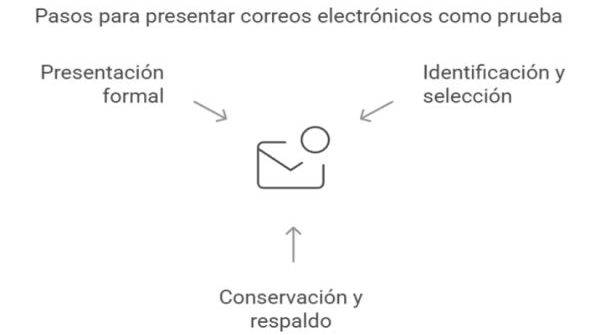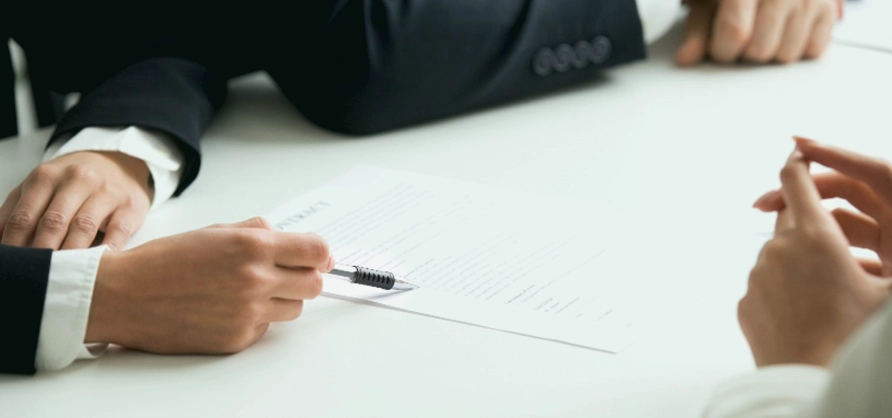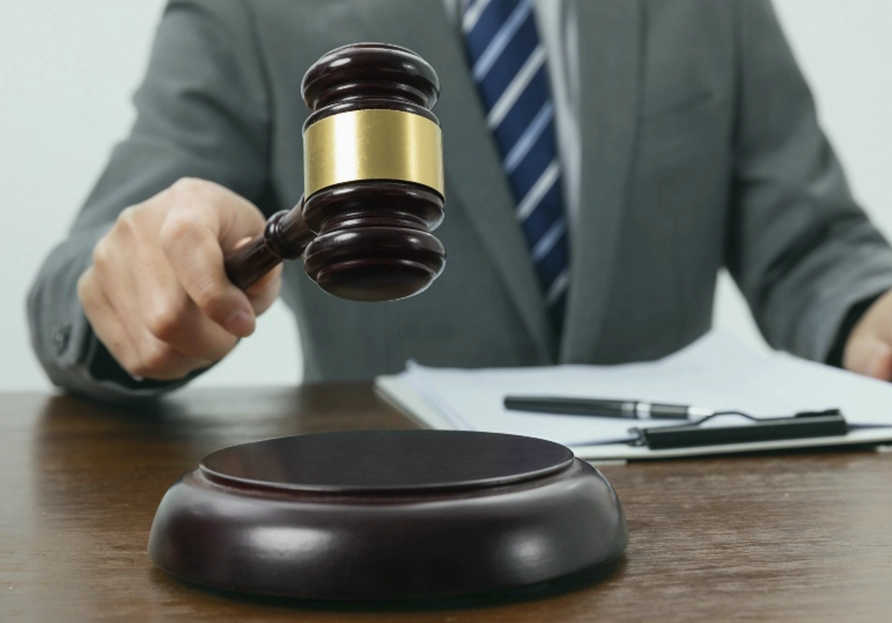When a company must face a legal dispute, the collection and proper presentation of certain backups is crucial. One of the most frequent queries is how to provide emails as evidence in a legal proceeding, as email is nowadays a key medium for both internal and external business communication.
If you need to know the legal validity of e-mails for your company, the steps to present them in court and the key recommendations to ensure their acceptance by the judge, you will find all the answers below.
Here is everything you will discover in this and other related articles:
- Legal validity of emails: how certified emails can be used as evidence in court and what factors influence their acceptance.
- Steps to file mails in a judicial proceeding: from identification and preservation to formal filing.
- Authenticity guarantee: the use of digital signature, encryption and certified email to reinforce its validity.
- How to act if authenticity is questioned: the importance of metadata and computer expertise.
- Legal regulations according to jurisdiction: requirements in Spain and other key aspects for companies.
- Data protection: we encourage you to read this specialized content on certified emails and data protection (integrity and confidentiality).
- Privacy and security: find out how to ensure the privacy and security of your e-mails.
Are e-mails valid as evidence in a trial?
Companies of various sizes and sectors, such as banking, insurance or technology, can use emails as evidence, before a judge, of agreements, commitments or negotiations. For example, an email between a bank and a corporate client can be fundamental to demonstrate the terms of a contract.
In other words, emails can serve as documentary evidence. This is what was established by the Supreme Court in its Judgment of the Social Chamber of July 23, 2020.
However, one thing is that they can be accepted as documentary evidence, and another thing is that they have full probative force. This means that doubts may arise as to their validity as evidence in a trial.
Legal validity of e-mails
The legal validity of e-mails as evidence will depend on how they have been obtained, stored and presented. To be admissible, corporations must ensure that the content has not been tampered with and that its authenticity can be verified. This is especially relevant where emails may contain confidential data, such as in the financial or insurance sector, among others. Fortunately, such proof is possible thanks to certified email.
MailComms Group’ s certified email service offers a legitimacy that certifies the content, date and recipient of the email. This provides a solid basis for emails to be admitted in legal proceedings without generating doubts about their integrity and authenticity, the first characteristic indicating that the content of the message has not been tampered with and the second that the document is original.
> Related content: when it is mandatory for a company to use certified e-mails.
But how do you make e-mails into legal evidence? Read on and we’ll tell you!
Steps to provide e-mails as evidence
Presenting e-mails as evidence in court requires certain key steps to ensure that they meet legal obligations and are accepted by the judge.
Identification and selection of relevant emails
The first step to take into account in how to provide e-mails in a legal proceeding is to identify the e-mails that are really relevant to the case at hand.
Within your company’s communications log, it is important to select only those messages that support the argument or evidence you wish to present.
For example, an industrial corporation wishing to prove the terms of a negotiation with suppliers will only need to provide the emails related to that agreement and to that supplier in question. This will avoid overloading the file with unnecessary information, thus complying with data protection regulations.
E-mail storage and backup
Once selected, it is essential to ensure that the e-mails are properly preserved. This involves saving backup copies in original formats, such as .eml or .msg, and avoiding any alteration of the content.
To reinforce its validity, you can choose to send a certified email through specialized platforms, such as those offered by MailComms Group, which ensure the safe custody of evidence, for the time required by the client or as established by law.
→ Find out here how to send a certified email and what are the benefits for companies.
→ And the relevance of using certified e-mails in the financial field.
Formal presentation in the judicial procedure: Proof Iuris tantum
The formal presentation of the mails must conform to the procedural regulations of the jurisdiction under which your company is located. In Spain, for example, it is common for emails to be submitted as hard copies accompanied by a digital medium, ensuring that they can be verified by technical analysis if necessary.
It is for this reason that qualified trustworthy electronic service providers play an important role, since article 326.2 of the Civil Procedure Law grants them a rebuttable presumption (unless proven otherwise). That is to say, the service provided, provided that it is not qualified, is presumed to have been provided correctly as long as the service provider appears in the list of trustworthy service providers. the trusted list of qualified providers and services. For example, a person’s possession of a good is presumed to be his or her property, unless another individual or company proves that the property belongs to him or her and proves it with documents, witnesses or through other channels.
In the event that the incorporation of the evidence at trial, as indicated in article 326, is not carried out through a qualified trust service, additional expert evidence must be provided to reduce the doubts regarding the authenticity, and therefore, the party providing it must allocate additional resources to provide this evidence at trial.

Recommendations to ensure the validity of e-mails
Beyond knowing how to provide e-mails in a legal proceeding, to avoid problems during the trial, it is important to take certain precautions to ensure the authenticity and acceptance of e-mails as evidence.
Use of digital signature or encryption tools
The use of a digital signature on e-mails can be decisive in proving their authenticity. In this regard, platforms such as Certysign allow you to add an electronic signature that confirms the sender’s identity and ensures that the content has not been altered since it was sent.
Avoid manipulations or edits
Of course, any modification to the content of an email can invalidate it as evidence. It is crucial to keep e-mails in their original format and avoid making edits or screenshots that may be questioned by the other party.
However, what can your business do if the veracity of an email is questioned? We tell you below.
What to do if the authenticity of a mail is questioned?
Sometimes, the authenticity of an e-mail may be questioned by the other party or even by the judge. In this case, it is necessary to call in a computer expert to analyze the metadata of the e-mail to confirm its integrity.
However, as is the case with an online burofax for companies, the legal validity of the certified email is immediately accredited by its very nature, making it the safest option.
Legal considerations according to your country or jurisdiction
Regulations on the use of e-mails as evidence may vary depending on the jurisdiction. In Spain, for example, e-mails are admitted as documentary evidence if their authenticity and relevance to the case is proven. In addition, it is possible to request judicial assistance to verify the content if the other party contests it, as indicated in article 326 of the Civil Procedure Law.
On the other hand, as we have mentioned, platforms such as CertySign allow you to send certified certified notifications as email, with the level of reliability you need, and complying with the legislative obligations derived from both the General Data Protection Regulation (GDPR) and the eIDAS regulation.
Now that you have this information, do you want your emails to be legally valid in a legal proceeding? If so, do not hesitate to contact MailComms Group. Our technology ensures that your mailings meet all the legal requirements your company needs!

Frequently Asked Questions
Is it necessary to submit the mails in original format?
Yes, it is always advisable to submit e-mails in their original format (.eml or .msg) so that they can be analyzed if necessary. Hard copies may be useful as a backup, but are not a substitute for the original digital file.
What happens if the mail is deleted?
If an email has been deleted, it can be recovered through specialized tools or by requesting the backup from your company’s email service provider. However, it is important to act quickly, as some providers delete emails permanently after a certain period of time.
How to ensure that the judge accepts the mail as evidence?
To ensure that the judge accepts the email as evidence, it is essential to know how to provide emails in legal proceedings, choosing those that are relevant and related to the case in question. In order for it to be considered as full proof, its authenticity must be demonstrated by metadata, electronic signature or the use of a certified email from MailComms Group.
Are e-mails without digital signature valid?
Although e-mails without a digital signature can be accepted as documentary evidence, their authenticity is more likely to be questioned. Therefore, it is advisable to use tools such as digital signatures to reinforce their validity and facilitate their acceptance in court.
